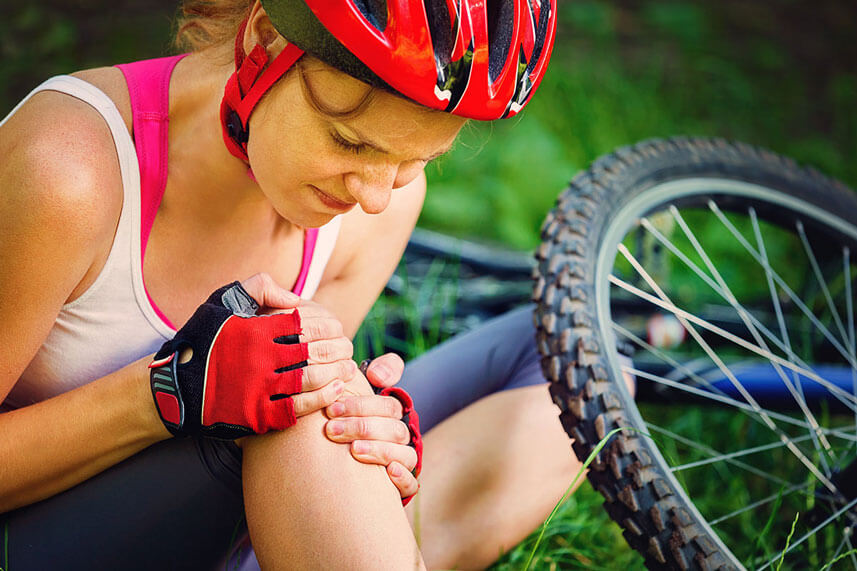What is a wound?
A wound is an injury that breaks body tissue, such as skin. There are different kinds of wounds, including cuts, scrapes, scratches, and punctured skin. The primary health risks of wounds are bleeding, infection, and potential internal damage.
What is wound care?
Wound care is the management and treatment of wounds. Since there are numerous different kinds of wounds, and they can affect health in so many ways, this is a big and complex topic. Wounds can have complicating factors, such as infection, that can develop into larger health risks.

Why get wound care?
Many people have training in first aid, and can treat minor wounds themselves or with the help of another person. However, great care must be taken to prevent the wound from becoming infected. If there are signs a wound has become infected, wound infection treatment should be provided by a healthcare professional.
Who performs wound care?
Minor wounds can be self-treated by carefully following first aid instructions. At the doctor’s office, clinics, and hospitals, there are many different kinds of health professionals. The type and severity of the wound will determine if a wound care specialist, a wound care nurse, a physician, or a surgeon is required.
Where do you go to get wound care?
When you or someone in your family is injured, you need to start the healing process as soon as possible. If the wound is life-threatening, the emergency department is your best option. For lesser wounds, if you can’t get an immediate appointment with your primary care physician, FastMed can be your wound care center. We offer convenient and affordable minor wound care services 7 days a week, 365 days a year. Our qualified healthcare professionals have experience in treating a wide variety of wounds. We know how to stop the bleeding, prevent infection, and start the healing process. When you find yourself thinking, “I wonder if there is a wound care clinic near me,” visit our location finder here.
What are some basic wound care tips?
Ever wondered how to treat a wound? First aid depends on how deep the wound is. Minor cuts and wounds require little treatment other than proper cleaning, disinfection, and bandaging. Deeper wounds may need additional treatment. In either case, make sure you remove any loose jewelry before the area swells.
Thoroughly cleaning the wound prevents infection. Do not use hydrogen peroxide or strong solutions that may irritate the wound. Wash hands well, then gently cleanse the wound with gentle soap under room-temperature, running water. Pat the wound dry carefully and apply an antibiotic cream or spray to the wound, followed by a clean bandage.
As the wound heals, the area should be cleaned and bandages should be replaced on a regular basis. If the wound shows signs of infection, visit your nearest FastMed as soon as possible for treatment. Look for expanding redness or red streaking from the wound, yellow or green pus, cloudy wound drainage, and increased tenderness or pain. If a fever develops, this can also be a sign of infection.
For proper healing, deeper wounds require medical attention and possibly stitches. If a wound can’t be held together with a bandage, continues to bleed after 20 minutes of direct pressure, or becomes infected, seek treatment at your local FastMed, and always remove any loose jewelry, especially rings, before the area swells.
To avoid tetanus, (lockjaw) a DTaP is recommended for children ages two months to 11 years. Tdaps are recommended between ages 11 and 18. Adults who haven’t had a tetanus shot within the past ten years should visit FastMed for a booster.
What items should be in a basic first aid kit?
First aid kits are a must-have for any home or workplace. Many people also store a first aid kit in their car. First aid kits are affordable, and can be purchased at pharmacies. Kits should be stored in a secure place, out of the reach of children. Periodically check the inventory of your kit, and re-stock missing or expired items. Though the comprehensive list of items that may be in a kit is massive, here are some requirements:
- First aid manual
- Sterile gauze pads
- Adhesive tape
- A variety of adhesive bandages
- Elastic bandages
- Antiseptic wipes
- Antibiotic ointment or spray
- Tweezers
- Scissors
- Safety pins
- Calamine lotion
- A list of emergency phone numbers
* The content presented on this page is not intended to diagnose health problems or take the place of professional medical care.